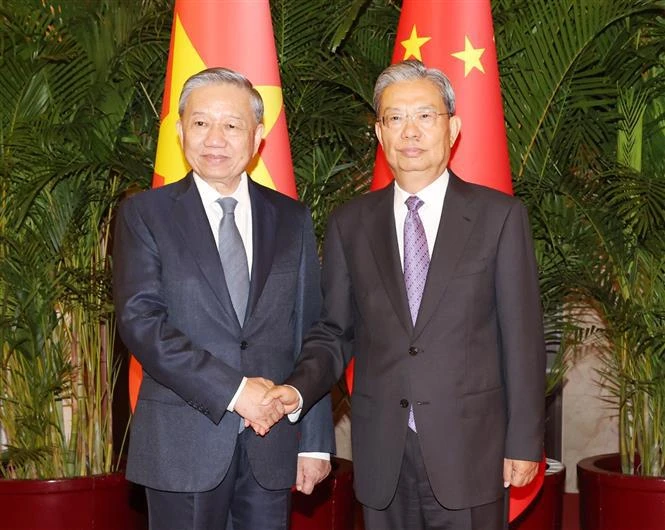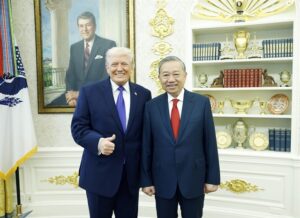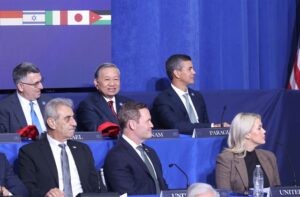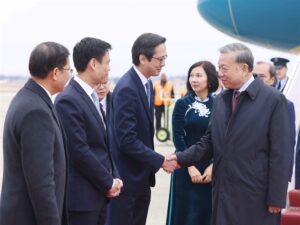China’s Top Legislator Zhao Leji Meets Vietnamese President To Lam in Beijing

Beijing, The Gulf Observer: Zhao Leji, China’s top legislator and chairman of the National People’s Congress (NPC) Standing Committee, held a significant meeting with To Lam, the President of Vietnam and General Secretary of the Communist Party of Vietnam Central Committee, in Beijing on Monday. The discussions focused on strengthening bilateral relations and advancing the strategic goals shared by the two nations.
During the meeting, Zhao emphasized China’s commitment to working closely with Vietnam to follow the strategic consensus established by the top leaders of both parties and countries. He expressed China’s readiness to push forward the construction of a China-Vietnam community with a shared future, which would contribute to the socialist modernization drives of both nations.
Zhao also highlighted the role of China’s NPC in this cooperation, stating that the NPC is prepared to work with the National Assembly of Vietnam to implement the existing bilateral cooperation agreement. He underscored the importance of utilizing the counterpart exchange mechanism, promoting multi-channel cooperation, and enhancing the exchange of experience in legislation and supervision. These efforts, Zhao noted, would provide a robust legal framework for the construction of the China-Vietnam community with a shared future.
To Lam, in his remarks, reaffirmed Vietnam’s strategic priority in developing relations with China. He expressed Vietnam’s willingness to deepen practical cooperation with China across various fields. To Lam also emphasized the importance of maintaining close exchanges between the legislative bodies of both countries, noting that such collaboration is crucial to promoting the construction of a community with a shared future that holds strategic significance for both nations.
The meeting marks a continued commitment by both China and Vietnam to enhance their bilateral ties and work together towards common development goals.


